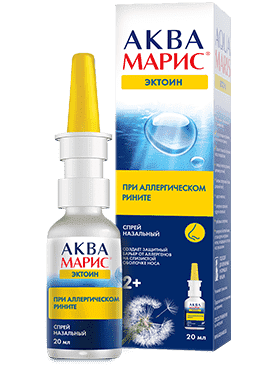The barrier effect of Aqua Maris® Ectoin means that, when bound to water molecules, its main component (Ectoin) forms a so-called ‘water shield’ on the mucosa surface. Ectoin® is produced by extremophiles, very ancient microorganisms which have been living in conditions of drought, excessive salinity and humidity for many centuries. Ectoin® is vital for such microorganisms in order to protect them from hostile environments. Extremophiles were discovered in 1980 in Egypt, in one of the saltiest lakes –Wadi El Natrun. Nowadays Ectoin® is produced by cultivating special bacteria which produce and release Ectoin® into the environment under conditions of heightened salinity. After it reaches the required concentration, Ectoin® is subject to refining and processing. The key Ectoin® function is protection of cells from drying-out and damage. A ‘hydrofilm’ made of Ectoin® and water on the mucosa surface protects it from allergens and inhibits excretion of the components which trigger allergic reactions. Minerals and microelements of sea salt, another Aqua Maris® Ectoin component, exert a restorative and anti-inflammatory effect on the mucosa, improve ciliate epithelium functions and remove allergens from the nasal cavity.
Allergic rhinitis treatment in children and pregnant women
Aqua Maris® Ectoin can be used for allergic rhinitis treatment in children of 2+ years old and in pregnant and nursing women. Ectoin®, a component of the product, forms a ‘water shield’ induced by solid complexes with water molecules, thus hindering contact with allergens and protecting mucosa cells from damage and drying-out. Apart from mucosa protection from allergens, Aqua Maris® Ectoin also has anti-inflammatory properties. Being a completely natural product, it has a high safety profile. The optimal dosage is 1–2 sprays into each nasal passage 3–4 times a day.





 Office No.7, 38 Lomonosovsky Prosp., Moscow
Office No.7, 38 Lomonosovsky Prosp., Moscow  +7 (499) 143-3770
+7 (499) 143-3770
 Победитель Премии «Выбор Мам 2023»*
Победитель Премии «Выбор Мам 2023»*



Добавить свой комментарий